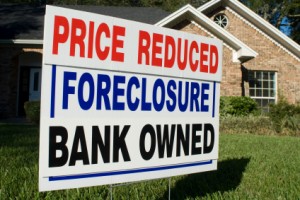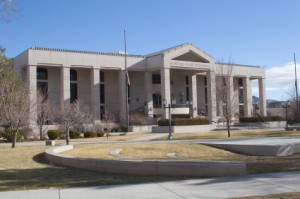 On November 16, 2010, the Senate Committee on Banking Housing and Urban Affairs held a hearing on Mortgage Services and Foreclosure Practices which included, Bank of America, among other lending institutions, along with consumer advocates and academics. Coincidentally, the Congressional Oversight Panel has recently produced a 127-page report, “Examining the Consequences of Mortgage Irregularities for Financial Stability and Foreclosure Mitigation” which also examines lending and foreclosure practices. Now that our elected officials are beginning to understand the depth of the securitization issues, let us all hope that the curtain will continue to draw back on the practices that have lead to the complicated mess we know as the “foreclosure crisis.” More importantly, let’s hope that our elected officials respond to this enlightenment, as they should, in the best interest of their constituents and the nation.
On November 16, 2010, the Senate Committee on Banking Housing and Urban Affairs held a hearing on Mortgage Services and Foreclosure Practices which included, Bank of America, among other lending institutions, along with consumer advocates and academics. Coincidentally, the Congressional Oversight Panel has recently produced a 127-page report, “Examining the Consequences of Mortgage Irregularities for Financial Stability and Foreclosure Mitigation” which also examines lending and foreclosure practices. Now that our elected officials are beginning to understand the depth of the securitization issues, let us all hope that the curtain will continue to draw back on the practices that have lead to the complicated mess we know as the “foreclosure crisis.” More importantly, let’s hope that our elected officials respond to this enlightenment, as they should, in the best interest of their constituents and the nation.
Both inquiries gave insight to the convoluted foreclosure and securitization (pooling and repackaging of loans into an entity, stocks of which are sold to investors) practices. The goal of politicians is to avoid foreclosure and keep those people who can afford to, and desire to, in their homes. Unfortunately, the fact that only 1 in 6 loans can be modified under bank and federal programs was lost on the Senate committee. More importantly, far less than 1 in 6 borrowers will ever receive an offer to modify.
Nevada consistently holds top rankings in:
- Foreclosure rates;
- Loss of property value;
- Unemployment and wage reduction; and
- Bankruptcy filings.
Given our dire circumstances, even a meager modification ratio of 1: to 6 would be a blessing to Nevadans. Alternatively, many financially capable owners are unmotivated to attempt to modify their loan due to the loss in real estate values in Nevada, residential and commercial alike, which are staggering compared to the rest of the nation.
Currently, Nevada has suffered a loss of more than 50% in property values, with experts projecting an additional loss of 10% in 2011. Since most of the modifications merely defer the principal, reduce interest rate and extend the term, the economic result of a typical modification is that the borrower will ultimately pay more for their property, over a longer period of time, than the “bubble rate”. For this reason, even if the banks were cooperative in granting modifications, a standard modification is not the answer for Nevadans.
What Nevadans are looking for is a meaningful principal reduction, but that is not on the table. The concern, according to the lenders and their servicers, is that principal reductions would result in actual losses to the banks and servicers. Moreover, banks do not want to write down principal because they would have to recognize the loss at the time it is reduced. The loss recognition could cause the bank to be deemed insolvent, a fact which exists regardless. Therefore, according to servicer banks, principal reductions cannot be granted as they pose yet another “systemic risk.”
As a nation, we are wrapped in “systemic risk”: the fall of the dollar, lack of manufacturing, foreign wars, terrorism, low standards of education, and more. However, at some point, our elected officials are going to have to select one of our many problems and start dealing with it, as Americans have historically done, head on. There is no better place to start than at home, as in American homes.
Nationally, it is estimated that 40% of all mortgages are securitized. However, and amazingly, regulators who govern the industry do not know the exact number of securitized mortgages. Regardless, this 40% is valued at nearly $7.4 Trillion Dollars. Though I was not able to determine the relevant value of securitized loans in Nevada, we do know that approximately 80% of our real estate market traded (was sold or refinanced) between 2003 and 2007. A historically large amount of those loans were packaged as securities and sold to other banks or investment funds for profit. Most importantly, the servicing of a majority of the securitized loans was retained either by the originating bank or its affiliate. This servicing element is an important profit engine and document control opportunity that the politicians are just beginning to examine.
On a performing loan, one where the borrower is paying, the servicer’s job is to collect monies from the borrower and pass them to the beneficial interest holder (owner of the note). In a non-performing loan, where the borrower is not paying, the servicer is paid for assessing penalties and fines, monitoring files to make sure that the paperwork is proper, foreclosing on the loan or following the borrower through bankruptcy. Servicers are paid to deal with the payment or non-payment of a loan, they are not paid to modify a loan and they are not concerned with the quality of the borrower’s service, or lack of service, as the borrower is not the default servicer’s client. The beneficial interest holder is the default servicer’s client.
Unlike servicers, the beneficial interest holder has a keen financial interest in the willingness and ability of a borrower to pay the note. Servicers are therefore in conflict with their client. The long term health and participation of the borrower is of no matter to the servicer as the servicer’s business model is not based on long term relationships but short term profitability. The fact is, servicers make more money when the loan is not performing, as they are able to collect more fees and penalties when a borrower is in default or is foreclosed upon. Taking this business model into account, it is not a stretch to think that a servicer would counsel a borrower to quit paying and push a foreclosure. Politicians now recognize that this compensation structure is contrary to promoting performance or modifications.
The long held cultural belief that banks are sophisticated and organized lends a credibility to their securitization and foreclosure processes that is not warranted. Bank procedures and information are rarely questioned. Moreover, it is the rare individual that can afford to hire counsel for protection. Borrowers’ lack of financial ability to defend themselves or prosecute, coupled with outdated cultural beliefs that banks are above suspicion for the fees and fines they charge, has produced an “above the law” culture that motivates servicer banks to cut corners and employ unchecked trickery. For years, consumer and bankruptcy attorneys in nearly every state have filed and won cases against servicers for abusive practices related to their default fees and practices. However, the abuse has not abated. The robo-signing is but another example of such manipulation.
The servicer banks claim the robo-signing was a “technical issue.” It can hardly be called a “technical” error when a “sophisticated” party to a legal proceeding manufactures false affidavits, counterfeits mortgages and assignments, reverse-engineers documents to support foreclosures, and forecloses. Given the history of instances where courts have fined banks for these practices, the consistent and constant fines for fraudulent documents are hardly an “error”. These practices are the affect of a lawless servicing culture that has yet to be held accountable. It is more like organized crime than a technicality.
The problem, unfortunately extends beyond the bogus fees and bad documents typical in a bankruptcy or judicial foreclosure proceeding. In a lien theory state, such as Nevada, there is no system to police the servicer banks. Before securitization, the Trustee marshaled the process. The trustee is supposed to be an independent party that insures the foreclosure process is conducted pursuant to the law. This is no longer the case. Trustees are often owned by, or an affiliate of, the default servicer.
In a foreclosure, whether it is judicial or non-judicial, only the mortgagee (the beneficial interest holder) has the authority to direct a foreclosure. Because the banks, now servicers, originated these loans and perhaps disregarded the requirements of transferring the loans, they have an additional conflict of interest with the securitized investors to whom they sold the loans. Recall that servicers are supposed to protect the process and call out problems with documents. In many cases, the servicers are hesitant to point out document defects as they often would be blowing the whistle on themselves or their affiliates, hence robo-signing. Document defects would also allow the new beneficial interest holders (owner of the note) to force buy-backs to the originator (now servicer) bank which sold them the note.
The securitization process, failures in documentation and other serious matters were discussed in the Congressional Oversight Panel’s report. The report noted that property and ownership documents may not have been properly transferred in the securitization process. The sheer volume of mortgages securitized resulted in the fall of the underwriting quality, and the failure to abide by the strict transfer requirements mandated by the trusts that bought the mortgages. The failure to properly document and transfer the mortgages could result in the trusts either not owning the loan or not having the ability to foreclose. Again, be reminded that the banks and servicers invented and controlled the securitization process making it possible in large volume. If the trusts have botched paperwork or no paperwork at all due to assignment failures, the trust investors would be profoundly impacted causing investor claims against servicers and those in the security chain and demands for put-backs to skyrocket. The “if” is a big and very well protected “if.” Such losses could put tax payers’ bailout money at risk if the banks become insolvent as a result.
There is thought to be nearly $6.2T of securitized debt in default (this does not include second liens). If even a portion of this could be forced back on to the banks because it was not properly transferred to the investor trust (called an “investor put-back demand”), the originator bank (who is likely to now be the servicer bank) could be in dire financial straits as the debt associated with the defaulted loans would greatly exceed working capital of banks. It is therefore in the best interest of the servicer banks to push loans into foreclosure because they can collect the default fees, sweep the document problems under the rug, and avoid put-backs and investor law suits, all while no one is looking.
The documentation problems are widespread in securitized loans. It is nearly impossible to discover who owns a note if it has been securitized. Traditionally, if a note was sold, it was recorded in the public records for the whole world to see. The banks, however, decided that they could do better than what county recorders and court houses have done for hundreds of years. Instead of following the traditional process, the banks decided to quit recording mortgage related documents in the public records. Their reasoning: the sheer velocity and volume of transactions jammed up the public recorder’s office and prevented them from transferring/selling loans fast enough. So, the banks/securitizers created MERS (“Mortgage Electronic Recordation System”). MERS is a private recordation system which effectively removes from the public record the identity of mortgage owners or those in its chain. With the MERS system, when you want to discover whether the document chain is correct, you must ask the bank or servicer to provide it to you. This document control is more than a convenience; it enables the documents to be manufactured and “corrected” before the public can detect it or claim it as a defense to foreclosure.
 But alas, it appears that judges and voters have begun to question the banks with justified suspicion. Let us hope our elected officials continue to do the same. Attorneys across the country have rallied against the crafty practices of the banks and servicers for years with little success. Despite these well-grounded arguments, judges and politicians continue to be swooned by the long held belief that the banks are never wrong. When the general public cannot afford to prove it, we must rely on officials.
But alas, it appears that judges and voters have begun to question the banks with justified suspicion. Let us hope our elected officials continue to do the same. Attorneys across the country have rallied against the crafty practices of the banks and servicers for years with little success. Despite these well-grounded arguments, judges and politicians continue to be swooned by the long held belief that the banks are never wrong. When the general public cannot afford to prove it, we must rely on officials.
Our banking industry holds all of the monetary, infrastructural and political cards necessary to keep the door to their closet locked. Through courts and political inquiries which question the authenticity and accurateness of all documents claimed to support their position, we must pry back the doors and hold banks and servicers accountable for their portion of this catastrophe. Banks and servicers can no longer enjoy the “untouchable” culture. If we are going to put this economy back on solid footing we must:
- Establish a Nevada task force to investigate the foreclosure conduct of trustees and default servicers and conformance with Nevada statutes;
- Ban privatized recordation systems and force compliance with traditional recording requirements;
- Enact laws that prevent MERS from foreclosing in its name or as a nominee;
- Force banks and servicers to demonstrate proof of proper mortgage documentation before foreclosing, regardless of judicial or non-judicial foreclosure;
- Punish those banks and servicers who have prepared or filed false documentation or worked in avoidance of the letter of the law in foreclosures, bankruptcy or otherwise;
- Force principal reductions where the documentation is faulty or the property is under water by more than 50%;
- Create a tax structure that incentivizes investor/owners to modify loans;
- Create a mortgage only bankruptcy where formulaic modifications are granted;
- Force banks to take the losses on bad debt they created; and
- Allocate all mortgage related losses so that not just the government, investors, and borrowers are damaged. (The banks need to suffer the loss for, in fact, they are more than in simple part responsible for creating it.)
With the help of the Congressional Oversight Panel’s report and the recent United States Senate hearings, the nation can begin to identify the hypocrisy of a banking culture that wags its fingers at borrowers who either cannot pay or refuse to pay their mortgages, and cry “moral hazard”. The banks and their servicers created and drove the securitization machine. Now, as our economy suffers from this process, the banks are still at the wheel, avoiding suspicion and pocketing money made from the rise and burst of the bubble.
Tisha Black Chernine, Esq.


 In a modern-day evocation of David’s slingshot triumph over Goliath, a couple of foreclosed homeowners in Naples, Florida reportedly foreclosed on a Bank of America branch last week, their attorney actually having moving trucks pull up in front of a Naples branch to execute a foreclosure judgment against the bank. To read the full story,
In a modern-day evocation of David’s slingshot triumph over Goliath, a couple of foreclosed homeowners in Naples, Florida reportedly foreclosed on a Bank of America branch last week, their attorney actually having moving trucks pull up in front of a Naples branch to execute a foreclosure judgment against the bank. To read the full story,  RealtyTrac reported Nevada posted the nation’s highest
RealtyTrac reported Nevada posted the nation’s highest  On May 20, 2011
On May 20, 2011  On May 11, 2011 the Nevada Senate passed Assembly Bill
On May 11, 2011 the Nevada Senate passed Assembly Bill  AB 284 passed the Assembly and had its first Senate hearing on Tuesday. Assemblyman Conklin presented the Bill to the Senate Judiciary Committee. Tisha Black Chernine, along with the Nevada Attorney General’s office and several others testified in support of the bill. If passed,
AB 284 passed the Assembly and had its first Senate hearing on Tuesday. Assemblyman Conklin presented the Bill to the Senate Judiciary Committee. Tisha Black Chernine, along with the Nevada Attorney General’s office and several others testified in support of the bill. If passed,  On April 25th, Assembly Bill 284 passed the Nevada State Assembly and is now headed to the Nevada State Senate. The bill would help to give more transparency to the foreclosure process and hold the foreclosing parties more accountable for their actions. Below is the list of how the Assembly voted.
On April 25th, Assembly Bill 284 passed the Nevada State Assembly and is now headed to the Nevada State Senate. The bill would help to give more transparency to the foreclosure process and hold the foreclosing parties more accountable for their actions. Below is the list of how the Assembly voted.



